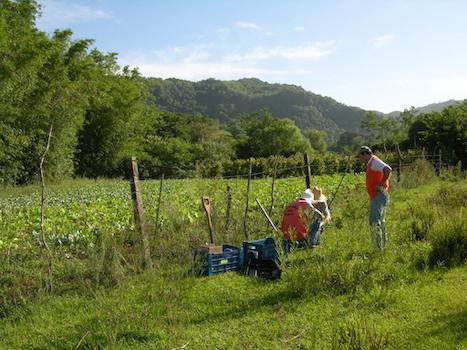The Short Report - August 2, 2023: A diabetes research boost; Springboard Atlantic's IP program, improving AI accessibility standards, and more
 GOVERNMENT FUNDING ANNOUNCEMENTS & OPPORTUNITIES
GOVERNMENT FUNDING ANNOUNCEMENTS & OPPORTUNITIES
The Government of Canada is providing $33 million in funding through the Canadian Institutes of Health Research (CIHR) in collaboration with Juvenile Diabetes Research Foundation Canada to support 12 projects, including a national screening research consortium led by Dr. Diane Wherrett at SickKids, to advance screening for early-stage, pre-symptomatic type 1 diabetes. Among the remaining 11 projects, four research teams will work on precision medicine in type 1 diabetes to tailor care to each patient’s specific needs and investigate the diversity within beta cell populations. The remaining seven teams will investigate the mental, emotional, and social effects of diabetes, and diabetes prevention and management, with an emphasis on children and young adults. Four of these projects will focus on type 1 diabetes, and three projects will focus on type 2 diabetes. CIHR Funded Teams Backgrounder
The Government of Canada and the Government of Manitoba are jointly investing up to $6.4 million to establish the Prairie Crops and Soils Research Facility at the University of Manitoba's Fort Garry campus. With a total budget of nearly $21 million, the facility will allow farmers and industry to innovate in a wide range of areas including nutrient management, cropping systems, digital agronomy, and breeding. The Manitoba Advanced Education and Training Ministry will provide up to $5.9 million in capital investment over three years, while the Sustainable Canadian Agricultural Partnership will contribute up to $500,000 to create the facility, which will be operational by June 2026. Government of Manitoba
Genome BC and the Investment Agriculture Foundation of BC, with support from the BC Ministry of Agriculture and Food, have awarded nearly $2 million in funding to eight projects through the Genomic Innovation for Regenerative Agriculture, Food and Fisheries program to improve local food sustainability and reduce threats to food production. The eight projects include initiatives that will:
- Breed disease and drought-resistant traits into hop varieties, to enhance their resilience to climate change (Dr. Mathias Schuetz and Dr. Paul Adams, leads, Kwantlen Polytechnic University’s Applied Genomics Centre)
- Investigate how cereal pathogens move into Canada with the goal of developing fast, DNA-based diagnostic tests (Dr. Gurcharn Singh Brar of the University of British Columbia and Dr. Guus Bakkeren of Agriculture and Agri-Food Canada, leads)
- Create tools that can evaluate how well Chinook Salmon populations handle climate events, like heatwaves, with the goal of identifying salmon stocks that are more resilient to temperature changes (Dr. Patricia Schulte, lead, University of British Columbia)
- Identify climatic determinants of pollinator health (Dr. Leonard Foster, University of British Columbia and Dr. Lan Tran of Agriculture and Agri-Food Canada, leads)
VanadiumCorp Resource (Vancouver) has secured a $500,000 grant from PRIMA Quebec for constructing a specialized plant in Val-des-Sources, Québec that will produce "vanadium electrolyte", a crucial component used in the development of vanadium redox flow batteries, a new type of battery used for storing renewable energy. The company's new production facility will be working with Carrefour d'innovation sur les matériaux de la MRC des Sources, and is expected to be in production in early 2024. The Newswire
Canada, through the Canadian Institutes of Health Research (CIHR) and the Natural Sciences and Engineering Research Council (NSERC), has renewed its commitment to the Human Frontier Science Program (HFSP), an international program funding research on the complex mechanisms of living organisms. CIHR and NSERC are providing a total of $5.2 million over the next three years to fund research through HFSP’s research grants and fellowships programs. CIHR
The Natural Sciences and Engineering Research Council has launched an initiative to support the goals of Canada’s Critical Minerals Strategy while growing expertise at every point along the critical minerals value chain from mining to processing to recycling. The Alliance Missions: Critical Minerals research program will provide grants ranging from $100,000 to $500,000 per year, for a duration of three years, and will encourage interdisciplinary, collaborative research projects. Projects must involve at least one partner organization to be recognized for cost sharing. The deadline to submit a Letter of Intent is September 7th, 2023. NSERC
Springboard Atlantic, the Elevate IP-chosen network of Atlantic Canadian universities and colleges connecting industry and researchers to encourage research commercialization, has launched an intellectual property (IP) program. The program aims to help startups, business accelerators, and incubators develop and implement a robust IP strategy while raising awareness of IP in the region. Support will be targeted to high-growth startups in need of IP search, assessment, and strategy development and implementation. Startups can apply for funding of up to $50,000 with up to 90 percent of costs covered to develop their strategy. An additional $25,000 is available to execute the strategy, also with 90 percent covered by Springboard’s program. Springboard Atlantic
The Fonds de recherche du Québec – Nature et technologies will be taking part in a joint transnational call with Biodiversa+, the European Biodiversity Partnership co-funded by the European Union, in September. The call is focused on nature-based solutions for biodiversity, human well-being, and transformative change. Research consortia must involve at least three countries, with two of them being from the EU. The deadline for proposals is November 2023 for the initial proposal and April 2024 for the full proposal. Québec teams can receive funding of up to $300,000 for a 3-year project period if they include researchers from a recognized Québec university. FRQ
RESEARCH AND DEVELOPMENT NEWS
Montreal-based emissions monitor GHGSat participated in the White House’s first Methane Summit last week, which produced a Cabinet-level Methane Task Force to advance a "whole-of-government approach to proactive methane leak detection and data transparency" and accelerate execution of the U.S. Methane Emissions Reduction Action Plan released in November, 2021. GHGSat’s participation in the summit is the latest in a series of partnerships with the United States; NASA recently awarded GHGSat a task order to provide it with methane emission data under the Commercial Smallsat Data Acquisition program to determine the utility of GHGSat’s data for advancing NASA’s Earth science and applications goals. GHGSat
The University of Saskatchewan has received a $1-million donation from charitable foundation Knight Cares and philanthropist Kevin Knight to support research and care for patients affected by neurological diseases such as brain tumours and strokes. The donation will be used to create The Knight Family Enhancement Chair in Neurological Surgery, to be held by USask Professor Dr. Mike Kelly, who will use the chair to establish clinical research trials in areas such as neurooncology, neurotrauma, pediatric neurosurgery, and cerebrovascular diseases. USask
U15 Canada has released detailed guidance for universities and researchers on leading practices to safeguard their research from security threats. The recommendations are meant to maintain national security while ensuring responsible conduct of research in fields such as AI, quantum technology, biosciences, and clean technologies. U15 Canada says it is also working toward developing a digital tool called "Secure Scholar" to support researchers in fulfilling research security requirements. U15
Olds College of Agriculture & Technology is partnering with the Regina-based AGTECH ACCELERATOR to establish a global agricultural technology hub in Alberta and Saskatchewan. The hub will focus on creating a platform for sharing information on agtech startups, providing learning opportunities for entrepreneurs in the agriculture sector, and delivering entrepreneurial programs tailored to agricultural students. AGTECH ACCELERATOR is a venture-backed accelerator program founded by Cultivator powered by Conexus, Emmertech, and Economic Development Regina (EDR). Olds College
Ontario Tech University and the Canadian National Institute for the Blind (CNIB) have formed a research partnership to develop explainable artificial intelligence (XAI) accessibility standards. With funding from Accessibility Standards Canada, the collaboration will focus on making AI-based tools more accessible for people with disabilities, such as sight loss and cognitive or learning disabilities. The research aims to create national standards, explaining the decisions made by AI systems in a more accessible manner and addressing the barriers faced by individuals with sensory disabilities. Ontario Tech University
STRATEGIES & REPORTS
An analysis of the first two years of Alberta Innovates' Alberta Scaleup and Growth Accelerator program shows the program is performing largely as expected. Thus far,
- 169 Alberta companies have received services from one of the two pre-accelerators, preparing them to progress to the global acceleration services
- 65 Alberta companies have graduated from one of the four global accelerators
- Companies in the program have raised $147.5 million and created more than $12 million in revenue growth
- More than 100 non-Alberta companies have been introduced to Alberta from around the world, leading to six of those companies registering their businesses in Alberta after completing one of the accelerator programs
Health Canada has released a compilation of research abstracts for 2021/2022 to support evidence-based decision making, policy objectives, and potential collaborations and partnerships. The abstract themes include air quality, cannabis, climate change, consumer product safety, pharmaceutical drugs, and water quality. The in-house research includes methods development, clinical studies, epidemiological studies and monitoring, surveillance, and testing to inform risk assessments. Health Canada
The Government of Manitoba has unveiled a strategy to establish the province as a global leader in supplying critical minerals. Manitoba contains 29 of the 31 minerals on Canada's 2021 Critical Minerals List, such as lithium, graphite, and rare earth elements. The strategy outlines actions to support the mining sector, focusing on six pillars, including Indigenous partnerships, geoscience research, regulatory streamlining, and skilled workforce development. The strategy's success will be measured, and the government plans to release an action plan in Spring 2024. Government of Manitoba
VC FUNDING NEWS
Canadian venture capital (VC) funding experienced a rebound in Q2, reaching $1.95 billion in Q2 2023, after a dip to $1.3 billion in Q1 2023, according to Toronto-based financial information provider CPE Analytics. The total VC disbursements for the first half of 2023 (H1 2023) amounted to $3.25 billion, representing a 62 percent decrease from the same period in 2022. US investors were the leading source of VC funding, contributing $1.43 billion (44 percent) and surpassing Canadian investors (40 percent). International investors from 28 countries invested $512 million, accounting for 16 percent of total funding in H1 2023. Among other key findings from the Q2 report:
- Ontario reclaimed its position as the top VC recipient, securing $1.59 billion in funding, with Quebec, BC, and Alberta following at $696 million, $455 million, and $365 million, respectively
- The City of Toronto stood out as the first $1 billion municipal city in 2023, securing $1.12 billion in VC funding. Montreal and Vancouver followed, receiving $637 million and $409 million, respectively
- Information and Communications Technology (ICT) companies led the sectors, raising $1.91 billion (59 percent of total funding), while Biotech and Cleantech raised $557 million and $483 million, respectively. Cision
THE GRAPEVINE
Prime Minister Justin Trudeau has made the following changes to his Cabinet: Lawrence MacAulay replaces Marie-Claude Bibeau as Canada’s Minister of Agriculture and Agri-Food. Bibeau takes over the role of Minister of National Revenue from Diane Lebouthillier, who has inherited the post of Minister of Fisheries, Oceans and the Canadian Coast Guard. Pablo Rodriguez has inherited the title of Minister of Transport from Omar Alghabra, and Mark Holland replaces Jean-Yves Duclos as Minister of Health. Duclos is now the Minister of Public Services and Procurement. Jonathan Wilkinson becomes Minister of Energy and Natural Resources; Ya’ara Saks becomes Minister of Mental Health and Addictions and Associate Minister of Health. François-Philippe Champagne remains Minister of Innovation, Science and Industry, while Steven Guilbeault remains Minister of Environment and Climate Change. Government of Canada
Martin Imbleau has been appointed the inaugural chief executive officer of VIA HFR – VIA TGF, Ottawa's high frequency rail project that will serve the Toronto to Québec City corridor. His appointment is effective September 8. Imbleau is the president and CEO of the Montreal Port Authority. Ottawa is preparing to issue a request for proposals (RFP) to three bidding teams and expects to publish the RFP this fall. HFR
Dr. Annette Hay has been appointed the inaugural Southeastern Ontario Academic Medical Organization (SEAMO) chair in research and innovation at Queen's University's school of medicine, effective July 1, 2023, for a five-year term. Hay is a hematologist and clinician scientist in the department of medicine with cross appointments in the departments of oncology and pediatrics, where she is a professor and chair of the division of hematology. She is also a senior investigator with the Canadian Cancer Trials Group (CCTG) working to develop and conduct clinical trials for patients with blood malignancies, perform economic evaluations of cancer interventions, and improve opportunities for adolescents and young adults with cancer to participate in clinical research. Queen's
Events For Leaders in
Science, Tech, Innovation, and Policy
Discuss and learn from those in the know at our virtual and in-person events.
See Upcoming Events
You have 0 free articles remaining.
Don't miss out - start your free trial today.
Start your FREE trial Already a member? Log in
By using this website, you agree to our use of cookies. We use cookies to provide you with a great experience and to help our website run effectively in accordance with our Privacy Policy and Terms of Service.





